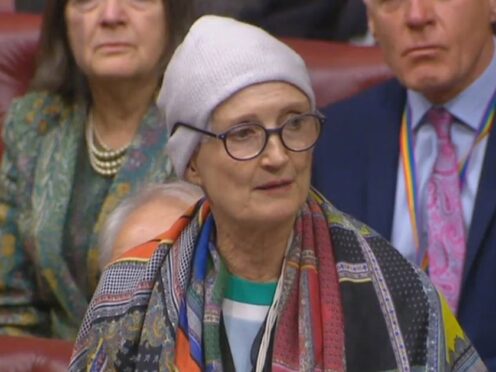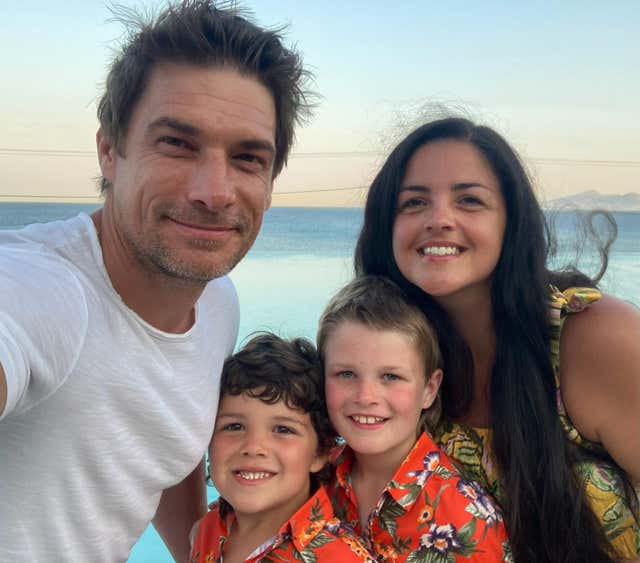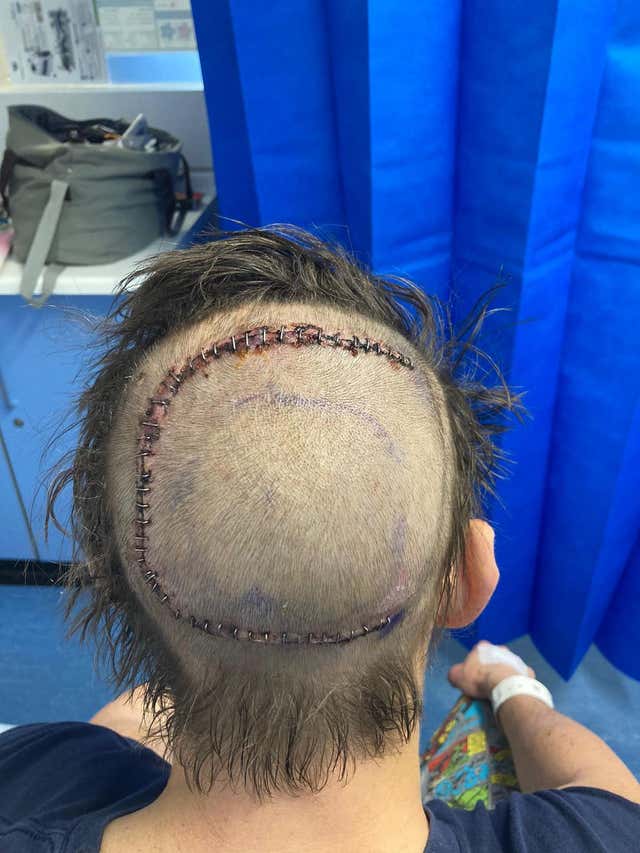
More than half of the money the Government pledged to fund brain cancer research in honour of Dame Tessa Jowell is yet to be “deployed”, a charity has said.
Dame Tessa, a former Labour cabinet minister, dedicated the final years of her life to raising awareness around brain cancer before dying from a brain tumour in 2018.
After her death the Government announced that it would make £40 million available to brain tumour researchers.
But £28 million of this is yet to be released to scientists, Brain Tumour Research said.
The charity’s chief executive, Dan Knowles, said: “£28 million of promised Government funding still hasn’t been deployed.
“That money is yet to fund researchers, and it is yet to provide any new hope for patients and their families.
“Research investment leads to innovation and clinical trials, resulting in new knowledge, new techniques, new therapeutics and improved options and outcomes for patients. If there isn’t investment in research, clinical advancements will not happen.
“Other cancers in recent decades have seen increased research investment and associated improvements in survival. Now is the time for us to make the same investment in brain tumours and find a cure for this devastating disease.”
It is the second time in recent years that the Government has faced criticism for failing to release promised money for research.
In 2021, the Government committed at least £50 million for motor neurone disease (MND) research.
But the Department of Health and Social Care was accused of withholding the funding following the death of former Scotland rugby international Doddie Weir in November 2022.
So sad to hear the news of the passing of my mnd hero Doddie Weir. I'm sorry to say, how many more warriors die before this stupid government give the 50m they said they would give. I'm absolutely gutted to see my friendly giraffe die. You are the reason for being so positive RIP
— Rob Burrow CBE (@Rob7Burrow) November 26, 2022
The Motor Neurone Disease Association said at the time that none of the money had been released to researchers, prompting ministers to act.
Now brain tumour campaigners are set to gather in Westminster to urge ministers to release more funding and to declare brain tumours a “clinical priority”.
They include actor Craig Russell, who had surgery for a brain tumour last year.
The 46-year-old, who played Mark Antony in the Netflix drama Queen Cleopatra, was diagnosed with a meningioma after suffering months of migraines and episodes of brain fog.

The father-of-two, from Falmouth, Cornwall, was going blind in his left eye and his skull became deformed before he had surgery and had part of his skull replaced.
“Before being told I had a brain tumour, I didn’t know how little funding research this disease receives,” he said.
“It’s opened up conversations with friends and family who have commented how much more they are noticing brain tumour stories in their everyday lives.
“The fact brain tumours kill more children and adults under the age of 40 than any other cancer, yet just 1% of the national spend on cancer research has been allocated to this devastating disease since records began in 2002, is ludicrous.”

A Department for Health and Social Care spokesperson said: “Brain cancer is a devastating disease, which is why we’ve made £40 million available for research projects specifically looking for new treatments and therapies to tackle this illness.
“We’ve invested in research infrastructure, workshops and training for clinicians to further progress developments in this field. And we continue to encourage further applications for research funding from successful candidates through the National Institute for Health and Care Research.
“We recognise the need to do more and will be convening a roundtable for researchers to come together to discuss how to drive faster progress in this important area in May.”
The Department spokesperson added: “Brain tumours is a difficult research area with a relatively small research community and we are relying on researchers to submit high-quality research proposals. “We’ve invested in every suitable research application made.”

Enjoy the convenience of having The Sunday Post delivered as a digital ePaper straight to your smartphone, tablet or computer.
Subscribe for only £5.49 a month and enjoy all the benefits of the printed paper as a digital replica.
Subscribe